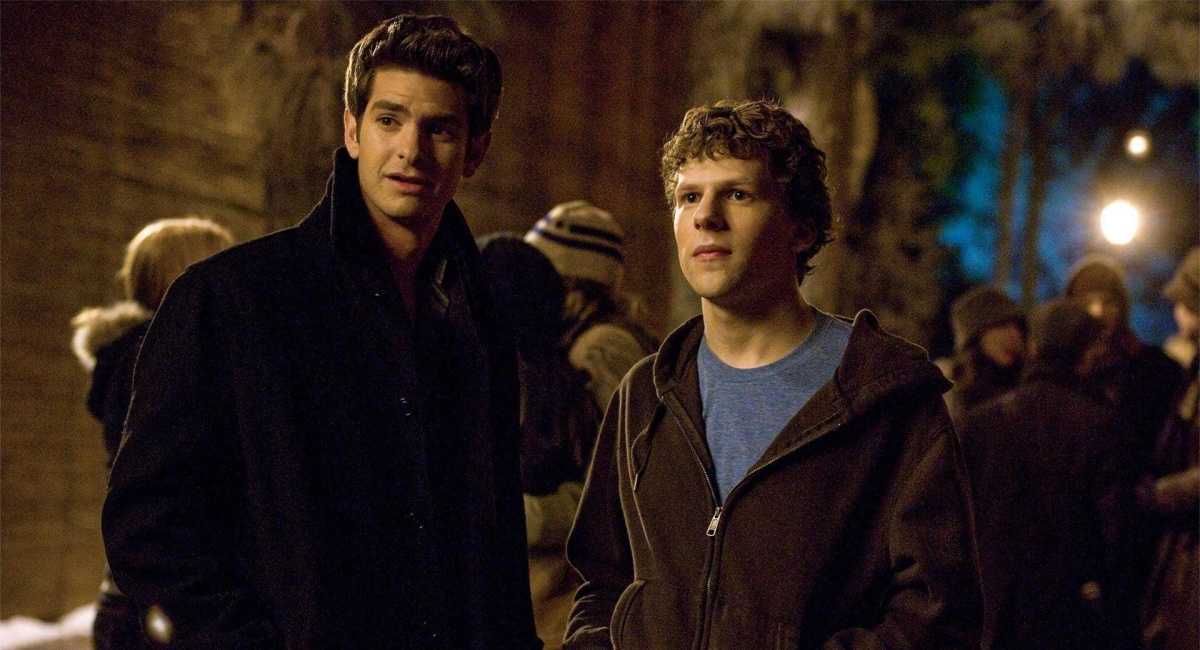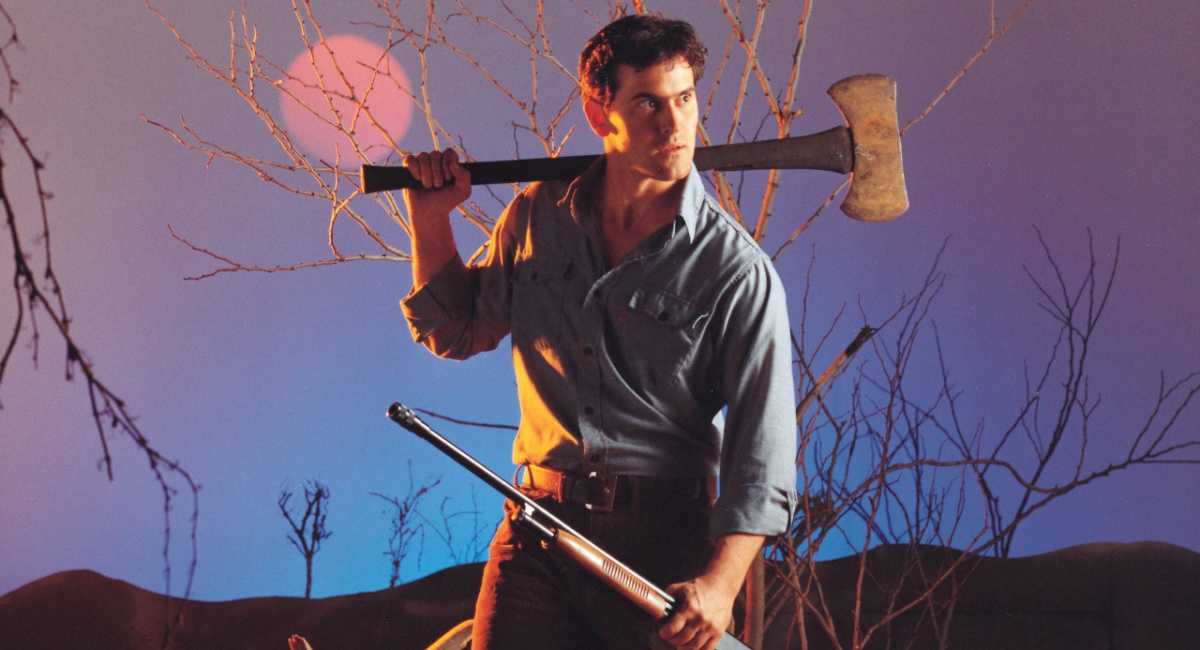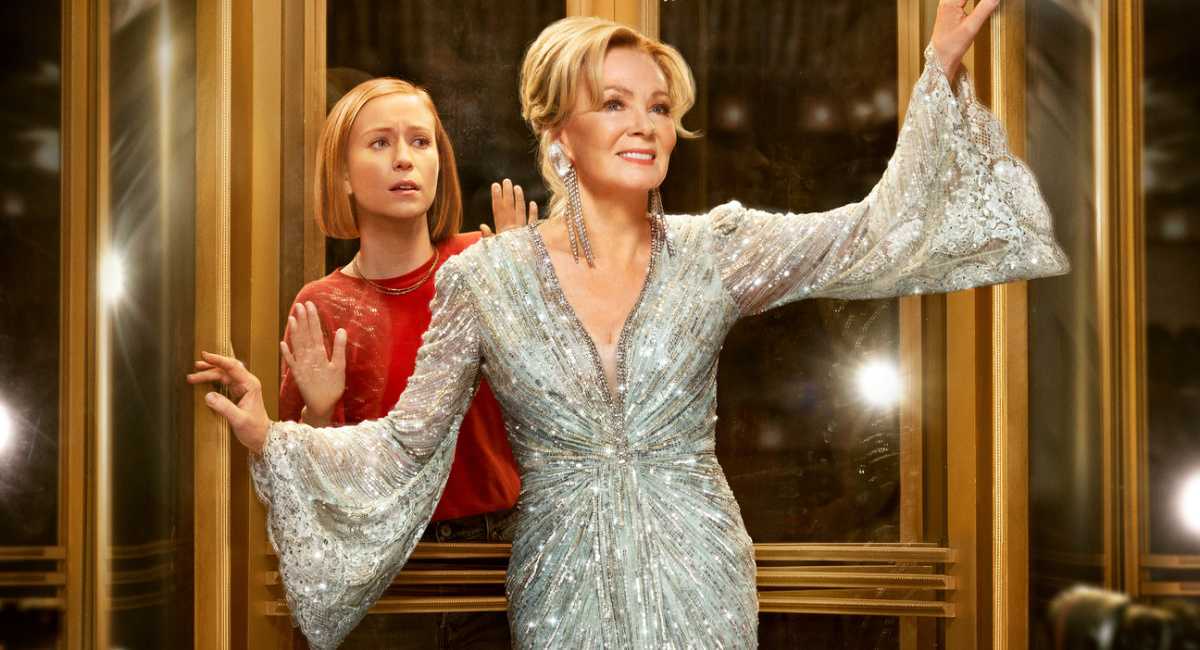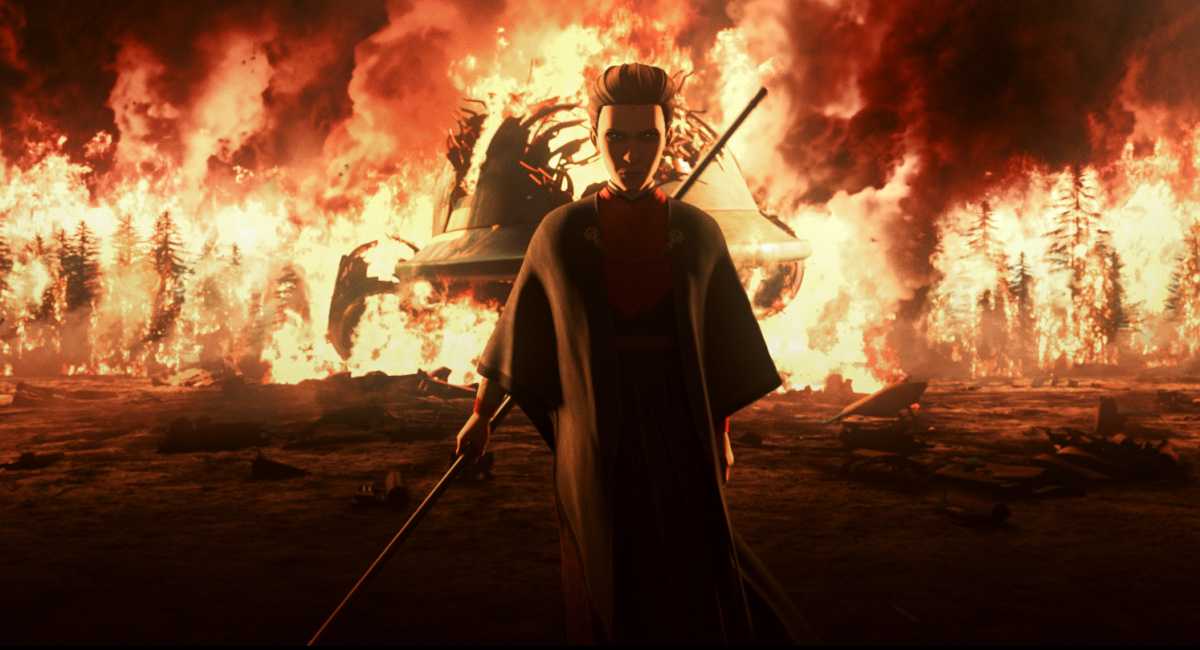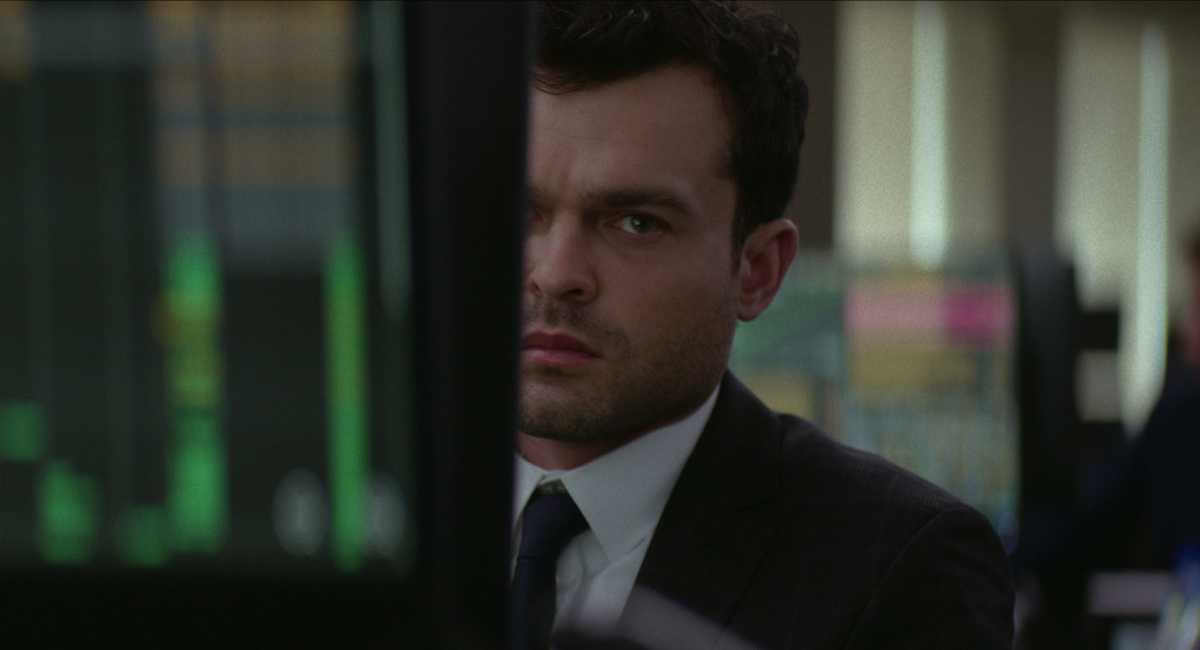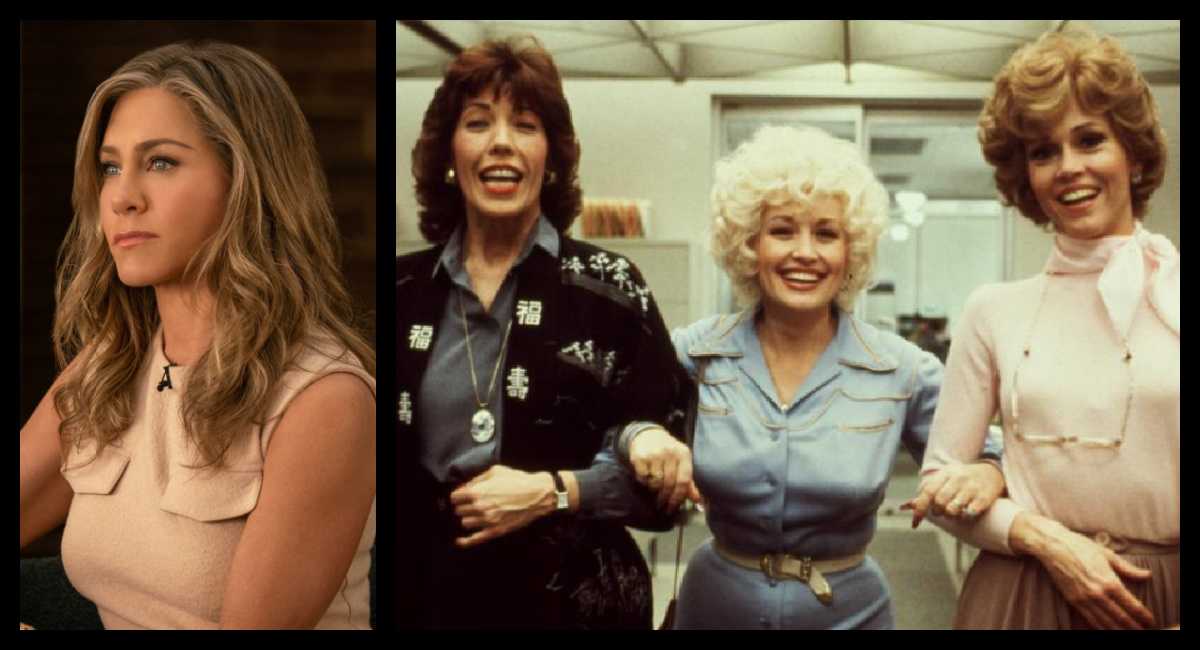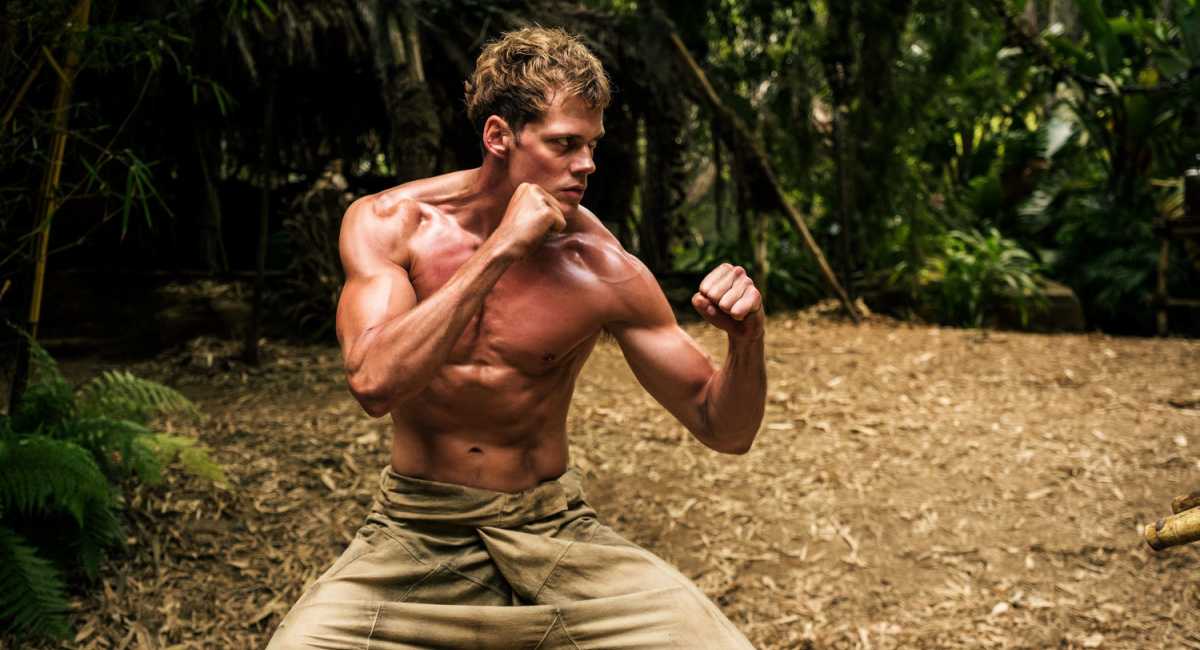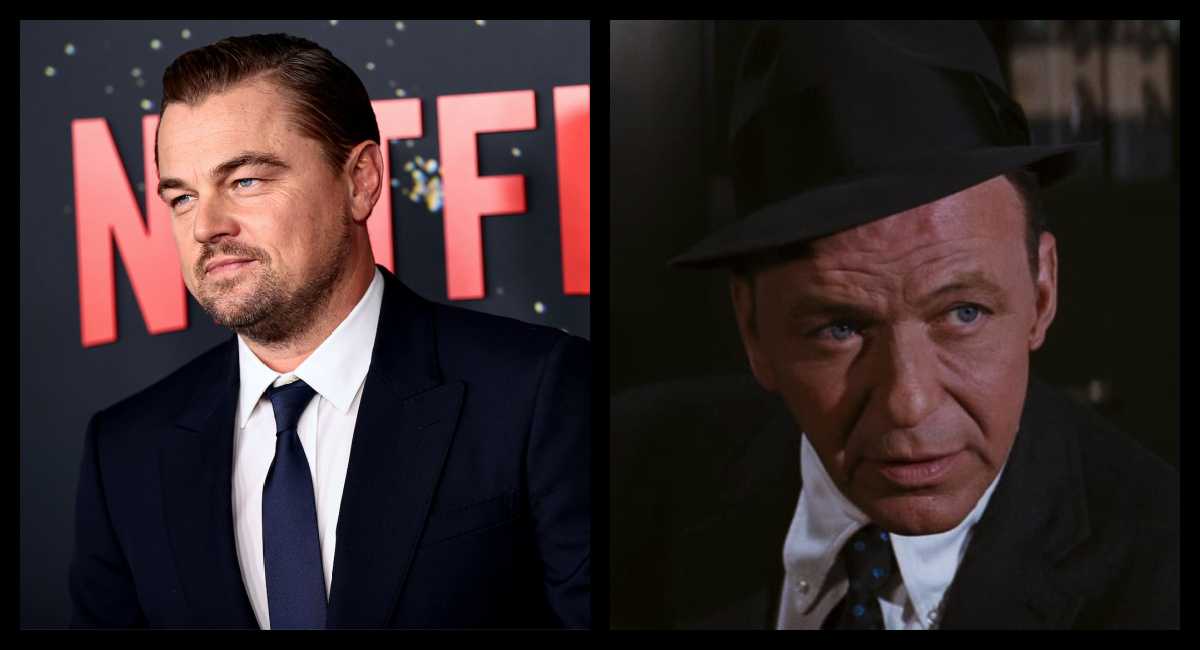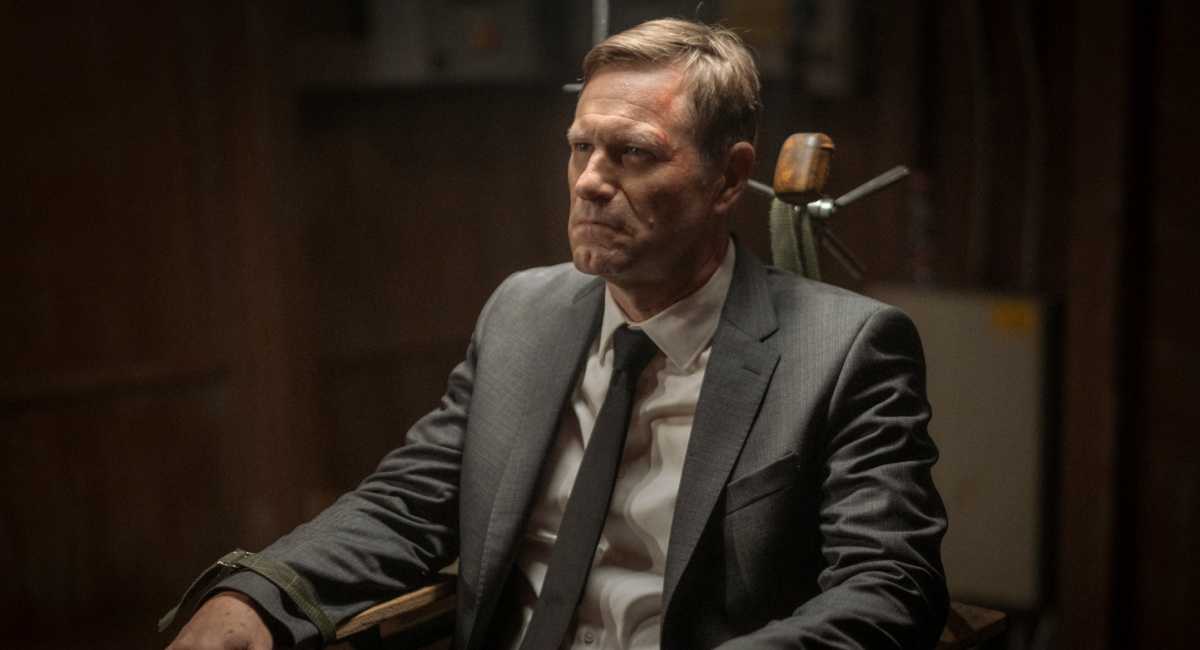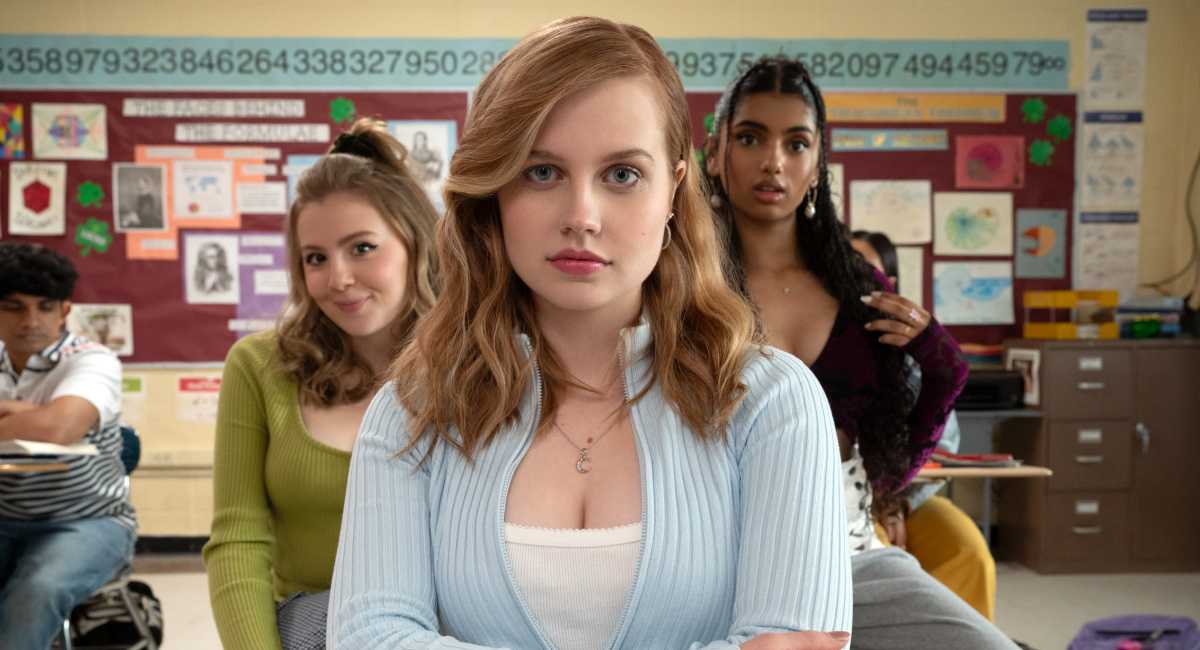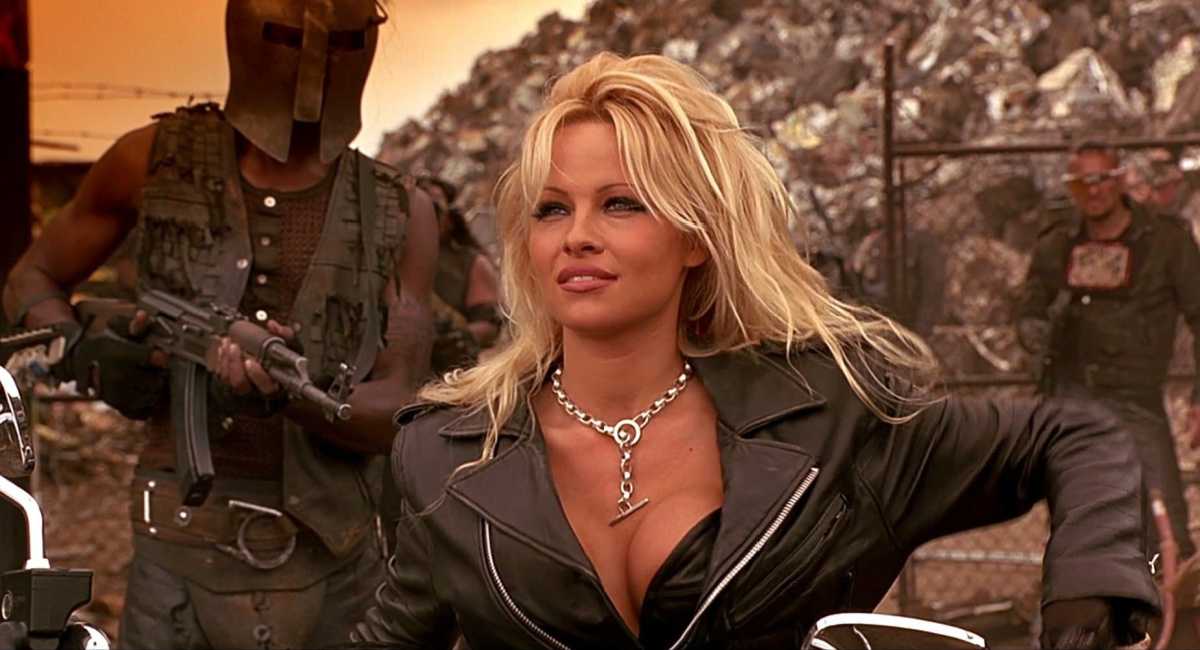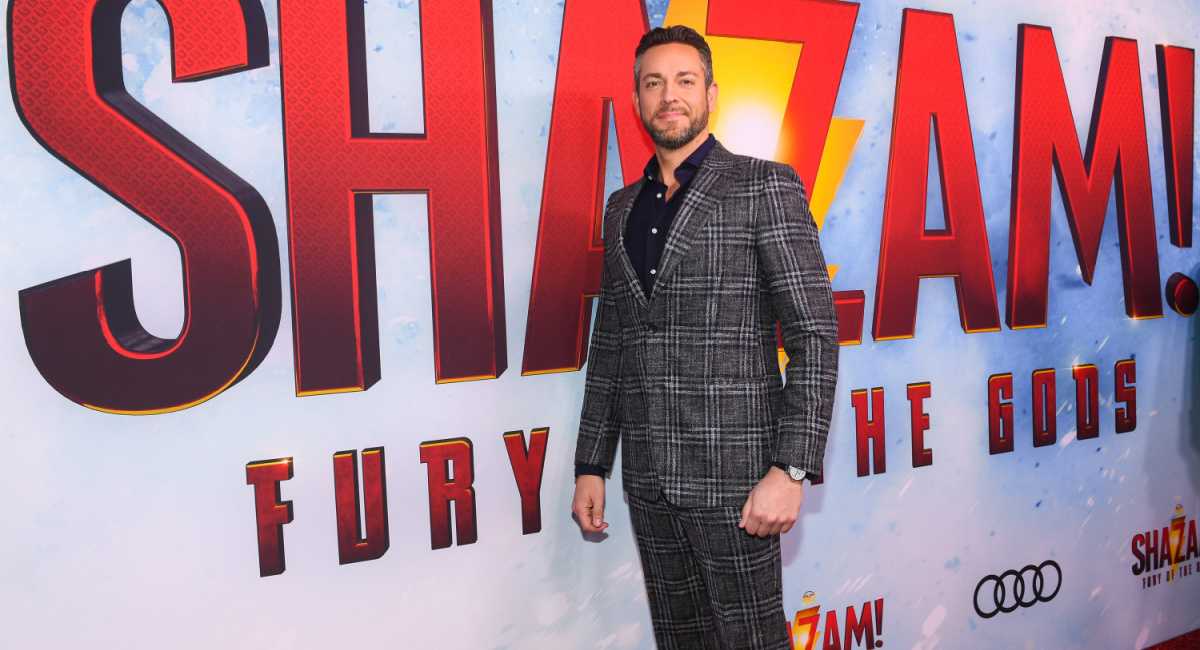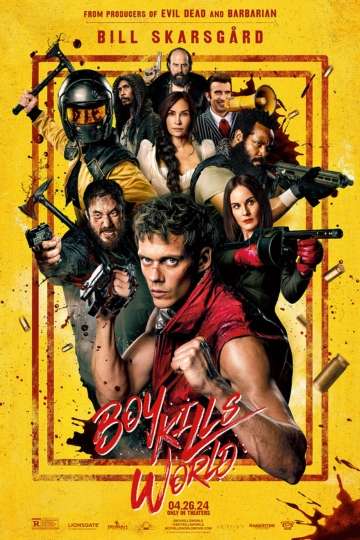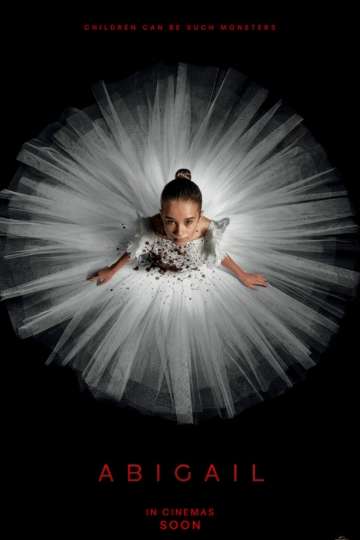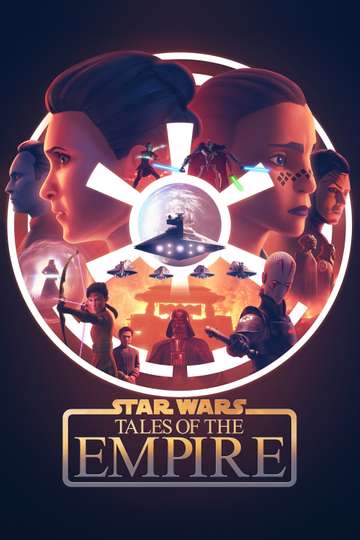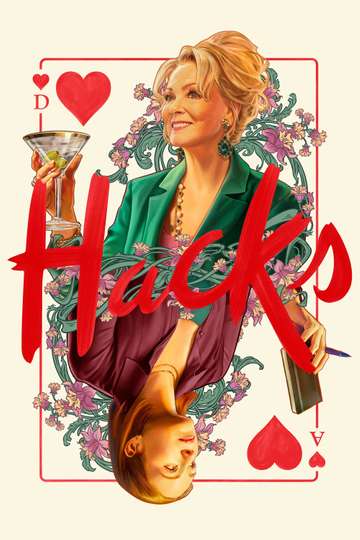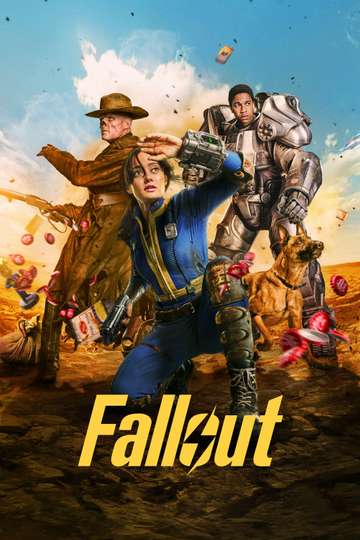14 Things We Learned on the Set of 'Fantastic Beasts: The Crimes of Grindelwald'
"Epic" is an adjective that gets overused in its application to most movies recently, but "Fantastic Beasts: The Crimes of Grindelwald" and its production values are certainly worthy of that descriptor.
Moviefone joined several other outlets on a London set visit in 2017, where we strolled the cobblestone streets home to the latest installment set in J.K. Rowling's world. It's like the production's mantra was "go big or go home," with the scale and attention to detail given to this production a refreshing break from recent blockbusters' reliance on mostly CG to lure audiences into theaters.
Sure, "Crimes" will have an impressive array of computer-generated effects because obvious, but they will, according to our chat with director David Yates, be used to underscore the production values without distracting from the crazy-impressive craftsmanship we were gifted a chance to walk among.
Yates is no stranger to delivering on the "epic" side of things, especially in the Harry Potter universe. He has directed every HP movie since "Order of the Phoenix" -- and he is back for the sequel to his first adventure with Newt Scamander (Oscar-winner Eddie Redmayne). Things get a little darker, and more, um, "epic," in this sequel, thanks to the escalating threat of villain Grindelwald that will put many fan-favorite characters in jeopardy. Can't wait.
Here are some of the most noteworthy things we learned from our interviews with the cast and crew on our set visit -- along with an exclusive behind-the-scenes pic from the set (thanks, WB!).
David Yates, Director:
1. On how the sequel blends multiple genres: "The script is a very interesting synthesis between a sort of political thriller and love story. So it's a sort of fusion of genres, if you like, which I think makes it quite unique in this series of films that we've been making based on [J.K. Rowling's] work."
2. On the movie's politically-relevant themes: "What's slightly scary is they're becoming more relevant now. So-- and what's wonderful is that, you know, we're making a movie that will be seen by millions of people and millions of young people, and we're making a story that celebrates tolerance, acceptance of the other, and sort of be cynical when people pretend they have all the answers at a simplistic level, because they probably don't."
3. On how Jude Law takes over the role of Dumbledore: "We're seeing Dumbledore as a young man and Dumbledore as a young man is quite a rebel. He's far from perfect. He's a inspiring teacher. All the pupils love him. But as ever, being Dumbledore, he's a wonderful manipulator and he has this incredible ability to sort of maneuver people into situations that they may not want to be maneuvered into. And Jude brings this amazing freshness and sexiness and- and sensuality and sort of wit and sort of charisma to the role."
4. On why it was important to feature Hogwarts: "It was something that evolved in the development process. Because we were introducing Dumbledore, it felt right to bring that world back into this one. We're there very briefly. You know, right in the middle of the movie, we go back from about ten minutes to Hogwarts and see it in 1927. It was a very organic natural part of the development process that took us back there."
Eddie Redmayne:
5. On Newt's ties to other Harry Potter characters: "In the first film, you sort of saw reference or references made to a couple of characters, one of which was Dumbledore and Newt's relationship with Dumbledore. And the other was Leta Lestrange, and one of the things that most excited me about this script is seeing how those two characters, along with my brother, Theseus, played by Callum Turner, how they come into the world, and really this new world of 'Fantastic Beasts' is aligned and kind of joined into the Potter lore that we all know about."
6. On why Newt and Tina have relationship troubles: "It's not so much a falling out [laughs] as a misunderstanding. [laughs] You know, at the end of the last film, Newt was going home to write his book, but was desperate to come back. And when you meet him at the top of this film, he's still desperate to come back. Through various miscommunications."
7. On the sequel's physical comedy: "The action ends up in Paris, where the major part of the film takes place. And there is a point in the movie where Jacob and Newt meet up and it's quite clear they have to go on an adventure to Paris. And so, there's that element and Dan [Fogler's] genius, which was one of the things I enjoyed most about the first film, how Jo had written Jacob, but then, Dan taking it to another level through improvising and playing. And there's so much of that and I love it because, you know, he always described it as sort of this Laurel and Hardy-style kind of relationship. But it was unlike anything I'd ever had to play and it's been really wonderful."
8. On how the sequel raises the stakes: "I think the interesting thing is that this film takes it to... you really get inside the psychology of the characters more and it's a darker place. You can sort of get a sense of what's coming historically in the Muggle world at the time and certainly the wizarding world. There are elements that are reflecting that and with the rise of Grindelwald and this sort of greater evil... the stakes are higher."
Colleen Atwood, Costume Designer:
9. On designing young Dumbledore's outfit: "Dumbledore was sort of vaguely purplish tones in the Potters, so I backed into that but I didn’t use purple; I used grays and softer tones that were very approachable. His clothes kinda have a soft texture so they feel lived in and- and at the same time, you know, a little bit different than what everyone else in the school would wear, like more approachable. He has a great coat that everybody loved; he has a big corduroy overcoat that he wears for a scene in the fog. And Jude looks great, he’s a great-looking man, so it doesn’t hurt."
10. On redesigning Newt's costume: "He’s done a little better in the world on the outside. His clothes are a little bit nicer quality; they’re not quite as rumply; they’re a little more urban I’d say. He’s written a book and he’s become acknowledged for who he is. And what I did is, I took a gray fabric that I found that I had woven for the film ‘cause I found an old piece and then the mill luckily reproduced it for me and then we just wanted a little bit of a hint of blue, so I did a screen over it of little, tiny blue dots so -- in some of the light -- you catch kinda the old blue; it’s pretty subtle."
11. On working with Johnny Depp again: "I’ve dressed Johnny a lot in my life in different things and he always has, you know, a certain style and something he brings to the table as an actor. He has a physicality that works great in costume because he just kind of owns it quite easily... I sort of brought it to him and he was like “Yes, let’s do this.” And then he has a look at the end that’s quite unique that we worked on together. We’re camera testing him the end of the week so we’ll see how it all flies."
Ezra Miller:
12. On how his character, Credence, and his journey evolves in the sequel: "I would say that he is both free and burdened in new ways. Obviously, there is an element of self-awareness that brings both of those factors into play. So he's free from a lot of the confines that he's known, and he's free of a certain sense of uncertainty. But with the consciousness of his reality comes also heavy burdens, and obviously, he's a bit of a ticking time bomb, given his particular magical condition. And there is a burden that comes in the form of a burning need to know more about who he actually is and to understand the roots that he's growing from, because obviously he's had a very fragmented experience up to this point."
13. On the relationship between Credence and Grindelwald: "I definitely felt that a lot of the exploration with Credence revolved around the idea of abuse and some of the different ways that trauma can happen to a young person. I definitely see that in a lot of the exploration of Credence. Something interesting about this idea of light and dark magic, and it's alluded to -- it's said many times in this series that love is a form of light magic, right? And so Grindelwald's manipulation of love, targeting that deficit that he could perceive in Credence is a form of abuse. You could also say it's a form of dark magic to wield power over that human need."
14. On how much the cast know about the future direction of the series: "Sometimes we're given glimpses into the crystal ball by, you know, the metaphorical Professor Trelawny. Sometimes we do get a little bit of divination going... But there's definitely a lot that we do not know. There's a lot that no one knows except for J.K. Rowling. You know what I mean? At all times it's amazing. It creates actually a really dynamic experience of making a series of movies. I find it really engaging, and I think everyone's sort of along for the ride, anxious to know more about the story that we're all telling together."
"Fantastic Beasts: The Crimes of Grindelwald" hits theaters on November 16, 2018.
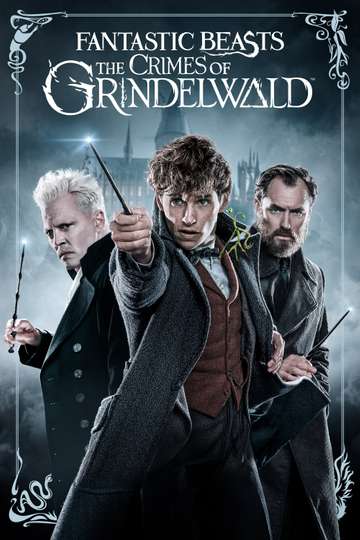
Fantastic Beasts: The Crimes of Grindelwald



